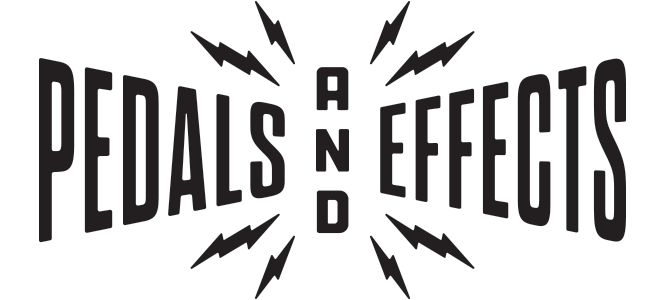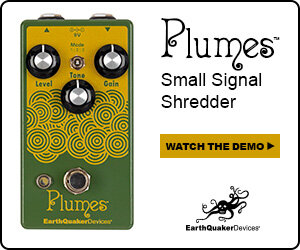Vintage Basses vs. New Basses
/As a fan of vintage basses who often uses them on records and on tour, people often ask me, “Do vintage basses sound better than new ones, and is there that much of a difference?” Before I answer this, let me give you a rundown on my personal history with vintage basses.
When Paul Gilbert and I started Racer X in 1985, I played two basses that were both from the previous decade. One was a late 1970’s Yamaha BB-800 that was a weird version of a Fender Precision that had the pickup put in backwards.
The top part (E and A string) of the Precision pickup was on the bridge side of the body, and the lower half was towards the neck (D and G). This was opposite of the traditional Fender Precision bass but I never thought about it because that Yamaha was my first real bass.
The other bass I owned was a 1976 Music Man Stingray that had been modified by the previous owner, Steve Evans (my one and only real bass teacher) who had put a Jazz pickup behind the main Stingray pickup (something he told me Louis Johnson did). Both basses sounded great, but it didn’t really cross my mind that the age of the instrument had anything to do with it. I preferred heavy basses, which both were, and figured the weight had something to do with the sound.
As the years went by, my main bass was a Fender “Squier” Jazz bass that I’d purchased at Guitar Center in Hollywood in 1986 for $300.00. At the time, I was endorsing Ibanez basses because I worked out an entire band deal where they outfitted Paul, Bruce Bouillet and me with instruments, promotion and general support. Ibanez made me several basses but they never sounded as good, as the inexpensive Squier. I favored it because it was so easy to shred on thanks to the thin neck, but I always knew there were better basses out there for me. It wasn’t until I first played Steve Evans’ 1970 fretless Fender Precision (my current main bass) that I started to wonder if vintage basses were better.
Now that I look back at many of the basses I’ve owned – from expensive Wal basses to Tobias 5 stringers; from Lakland USA models to Fenders, I’ve pretty much come to the conclusion that I’m a vintage bass player, most of the time. I own a handful of vintage Fenders and they all sound better than all the basses I have owned over the years, but the question remains…do they sound better because they are old? Does time have anything to do with the sound from these instruments?
There may be some truth to the idea that the wood dries out over time, making the bass sound more pronounced and have more focused clarity. This could be the result that the wood also hardens and reflects the sound waves from the string with more resonance. I have also heard that time affects the relationship of the wood with the neck and body. The two, separate pieces of wood become more harmonious from all the years of vibrations going through them. I’ve also read that that relationship has good years and bad, so a vintage bass can sound great one year and but not so much the next.
From my personal experience, I can tell you is that my vintage basses sound great, and my 1964 Jazz bass sounds better than it did when I first acquired it in 1994. I’ve used it on multiple recordings and I’m always amazed at how much more defined the notes sound, and how the overall low end delivers such a deep and expressive tone. I can say, without question, that it’s my favorite bass.
I own several, newer basses, but they just can’t compare to the sound I get from my vintage ones. For my style of playing and the kind of music I make, vintage basses work best for me. I also feel that playing vintage basses gives me a deep connection to the art form that is music. These instruments – with their history of players before me, tours they’ve seen, places they’ve been – have stood the test of time and their legacy continues in the hands of whoever is playing them now.
No matter where you're at with your instrument, remember that music is a journey, an experience. You might be connected to more to some instruments over others, but each one will help you develop as a musician. You can find all of these basses, vintage, new and more at Reverb.com.












